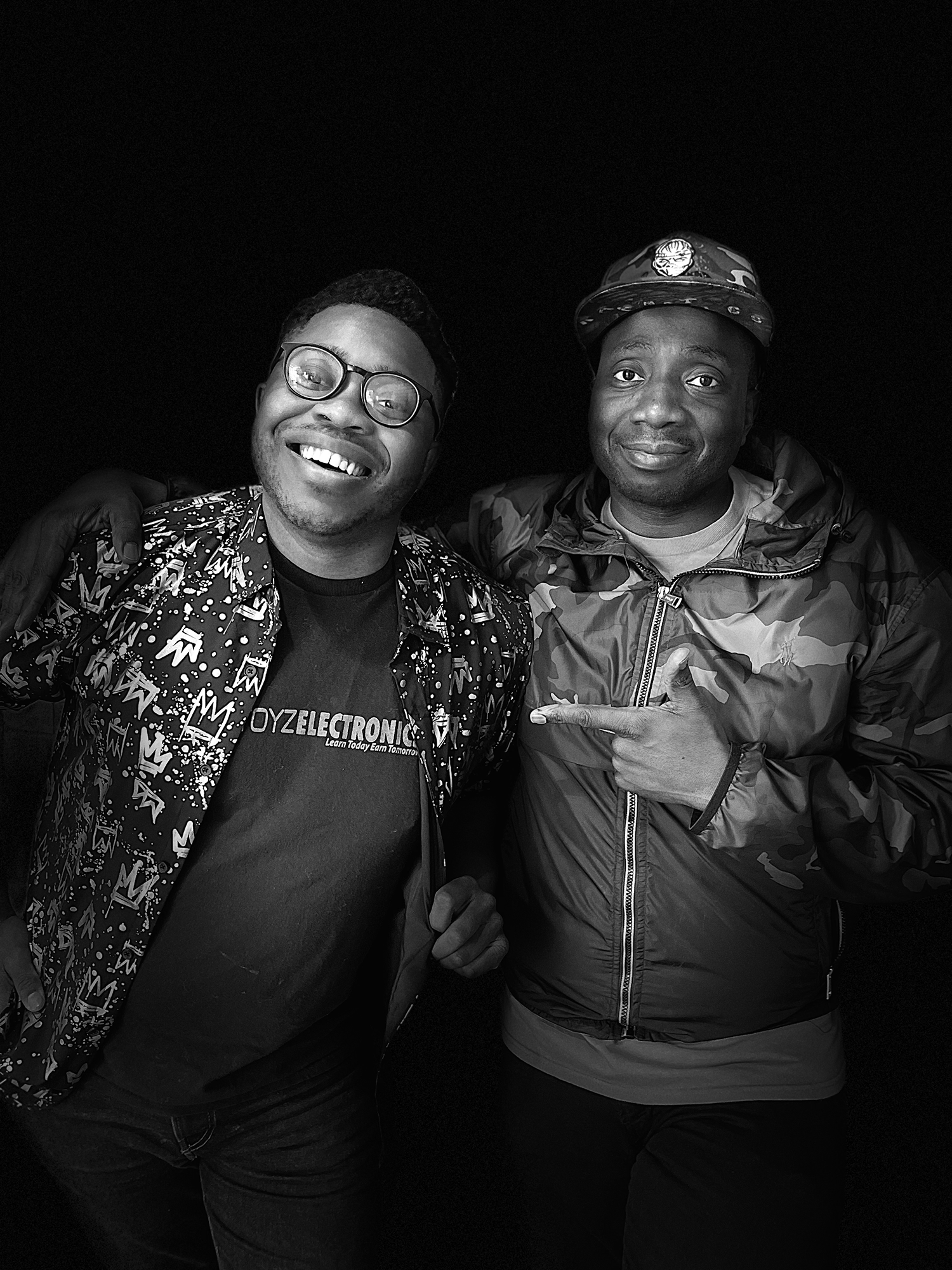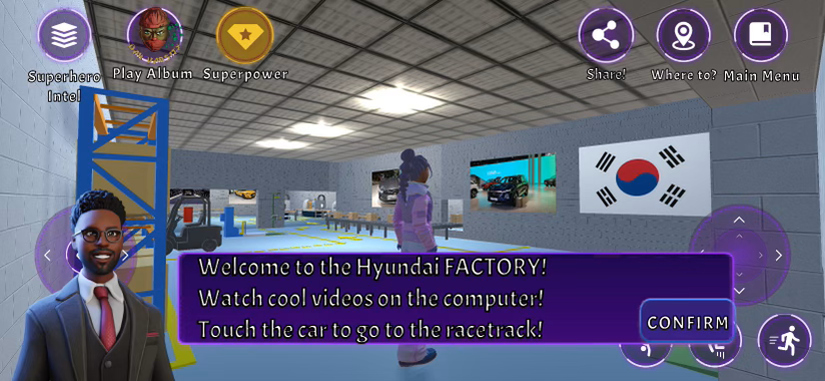TEQ Cover Story: Toyz Electronics is Empowering Gen Z
By Sheena Carroll
 Generation Z has recently joined the workforce, marking a new era of growth and challenges. Employers have already identified a generational skill gap that could potentially result in trillions in lost revenue. The tech industry already suffers from a lack of diversity that may be exacerbated by this expanding gap. To ensure that no one is left behind in the Intelligence Age, Toyz Electronics is gamifying STEAM (Science, Technology, Engineering, Arts and Math) education.
Generation Z has recently joined the workforce, marking a new era of growth and challenges. Employers have already identified a generational skill gap that could potentially result in trillions in lost revenue. The tech industry already suffers from a lack of diversity that may be exacerbated by this expanding gap. To ensure that no one is left behind in the Intelligence Age, Toyz Electronics is gamifying STEAM (Science, Technology, Engineering, Arts and Math) education.
Founded in 2014, Toyz Electronics combines gaming, a marketplace and online learning platforms all into one immersive platform. By gamifying learning, upskilling diverse prospects, and offering mentoring relationships and career opportunities, Toyz teaches students how to start their journey and to also tell their story in the process. The company has received several accolades, such as being a MIT Solve finalist for Anti-Racist Technology and runner-up in the Richard King Mellon Foundation pitch competition. In 2022, the company raised a $500,000 seed round.
The father and son duo behind Toyz, Damola and Wole Idowu, are both highly educated engineers, creatives and entrepreneurs who believe that a lack of diversity in the talent pipeline is a primary concern within the generational skill gap.
“We’re multigenerational black engineers who both got our starts at elite universities — me at Syracuse, and Wole at Carnegie Mellon,” Damola said. “I studied mechanical engineering and economics; he studied electrical and computer engineering. What we’re doing with Toyz is democratizing what I did for Wole.”
As Wole grew up, Damola took great care to diversify his education and life experiences. Wole started learning Mandarin at the age of 4, and was raised in Washington, D.C., as well as Appalachia.
Wole said, “I always tell people, ‘How did you get a kid from inner city D.C. to Carnegie Mellon at 15?’ He’s pitching his ideas on CNBC, FFT and a 20-under-20 competition with the PayPal Mafia; then he’s working at EA and multiple Fortune 500 companies; then he gets a degree in Electrical Computer Engineering, with two business minors. He gets venture-backed and has a startup [Toyz] at the Carnegie Mellon Swartz Center for Entrepreneurship.’ I’m like, ‘That’s me! And my dad!’”
“We want to give everybody’s child the same opportunities I gave to my son,” said Damola. “We investigated why it is that Blacks and Hispanics are 43% of K-12 students, but only 15% of the tech workforce? What’s wrong with the pipeline? What’s wrong in the ecosystem?”
Toyz envisions a future where this digital divide no longer exists. Bridging the gap is no easy feat – fittingly, Toyz is using superheroes on its mission to achieve this. With the Superhero Rap platform, students can create their own personas, superheroes with powers related to their potential interests within the tech world. Damola explained that Superhero Rap is based on Idealism, asking students what it is that they want beyond themselves.
“Your villains are the obstacles in the way of your highest state of mind and your higher vision of what you want the world to be,” Damola said. “So, you use science, technology, engineering, art and math as your superpowers to overcome your obstacles. And in that process, you’re now able to tell your story. Hip-hop is the greatest storytelling art form there is. Now you can use rap as a framework to tell a story of your own STEAM adventure, about how you’re going to use STEAM to make the world around you better.”
 The Superhero Rap concept has already demonstrated success in helping entire communities tell their stories through the Dah-Varsity Game. Students have utilized this platform to showcase their skills, improve their articulation, and gain better opportunities for college pathways and employment. Through user-generated, content-based portfolios and application supplements, Toyz highlights the skills and achievements of these students. Notably, the recent pilots have resulted in young Black women being accepted into prestigious engineering and game design programs at universities like Michigan, Georgia Tech and USC.
The Superhero Rap concept has already demonstrated success in helping entire communities tell their stories through the Dah-Varsity Game. Students have utilized this platform to showcase their skills, improve their articulation, and gain better opportunities for college pathways and employment. Through user-generated, content-based portfolios and application supplements, Toyz highlights the skills and achievements of these students. Notably, the recent pilots have resulted in young Black women being accepted into prestigious engineering and game design programs at universities like Michigan, Georgia Tech and USC.
In 2024, Toyz continues to look forward and is excited to collaborate with other companies. Toyz is working with Epic Games to create educational opportunities for educators and students. The intent is to participate in events at Duke that support the efforts of Toyz as well as the upcoming Game Development program at Duke University. This will involve presentations by the education team at Epic around preparing students for careers in Interactive 3D using tools like Unreal Engine and Unreal Editor for Fortnite. There will be a distinct opportunity for students from HBCUs to participate as well through events including conferences and game jams geared toward students. These opportunities will span skills around game development, Interactive 3D and entrepreneurship.
While Toyz is based at Carnegie Mellon’s Swartz Center, they are also part of the Project Olympus incubator and MIT Solve incubator. These resources enable Toyz to leverage high-quality entrepreneurship and educational support to refine their approach and AI model. Collaboration with prestigious institutions like Howard University, Texas Southern University and Syracuse University ensures an equity-focused lens on their AI and Data Science projects.
Toyz is currently working with Manchester Academic Charter School through a partnership with PPG, connecting students directly with Carnegie Mellon through field trips, mentorship programs, and collaboration with alumni from the Entertainment Technology Center and Engineering School. Additionally, the university’s Math Enrichment Plus program provides math support to students, further enhancing their opportunities in the tech field. According to Damola, this is a scalable and repeatable formula that could happen in any community with large academic institutions.
Toyz Electronics not only envisions a future where the digital divide no longer exists, but also a future where inclusivity and innovation in tech can bring humanity to its full potential.
“I figure that the future is bright if we can include everybody in the Intelligence Age,” Damola said. “Because now we are aware of how, for over a century, too many people have been left out. So how can we reimagine it?
“The more people you include, the more rapidly humanity accelerates to adoption. So, it’s not just altruistic. The more inclusive you are with innovation technology-wise, the better the adoption will be. The better the utilization, the better the monetization, the better the profitability, and the better the sustainability. In the future, you must include everybody in innovation so it can be widely deployed.”